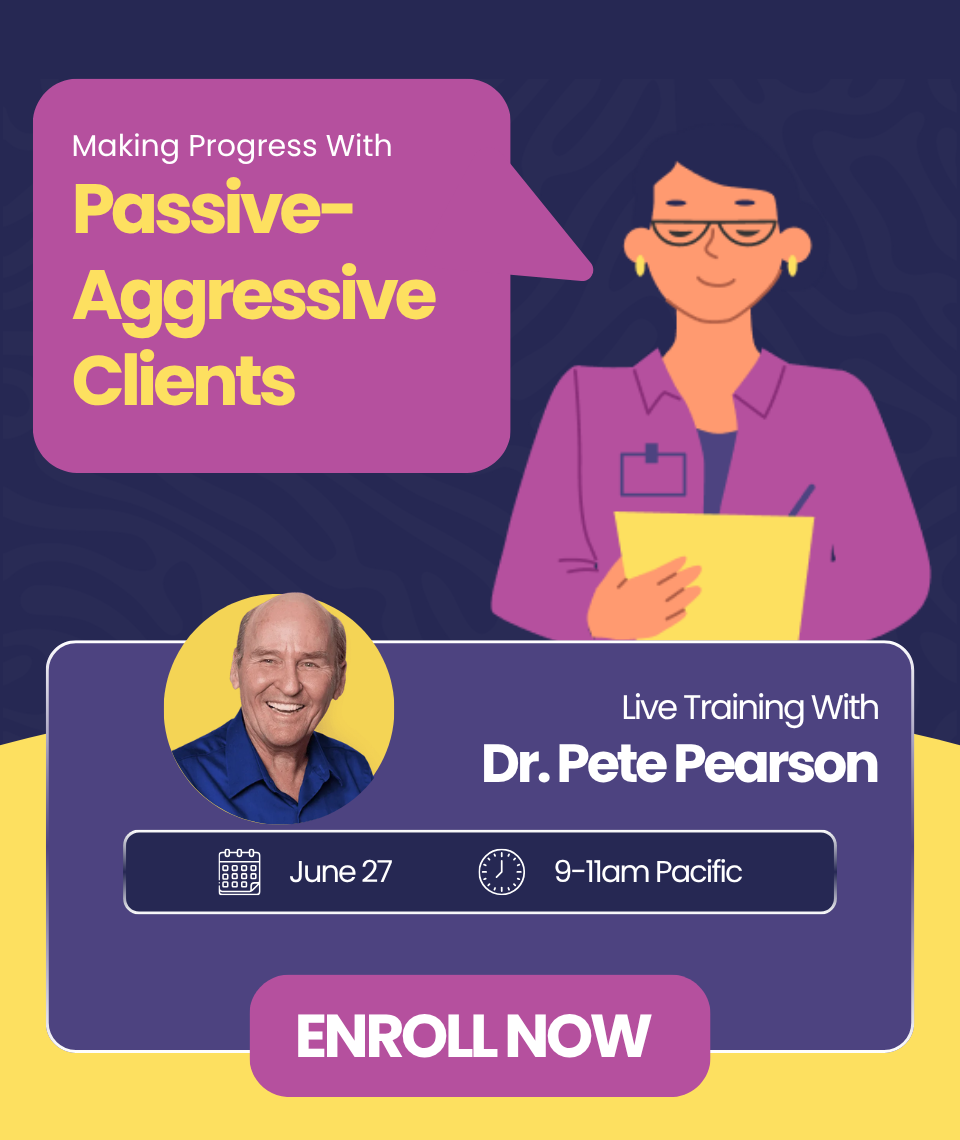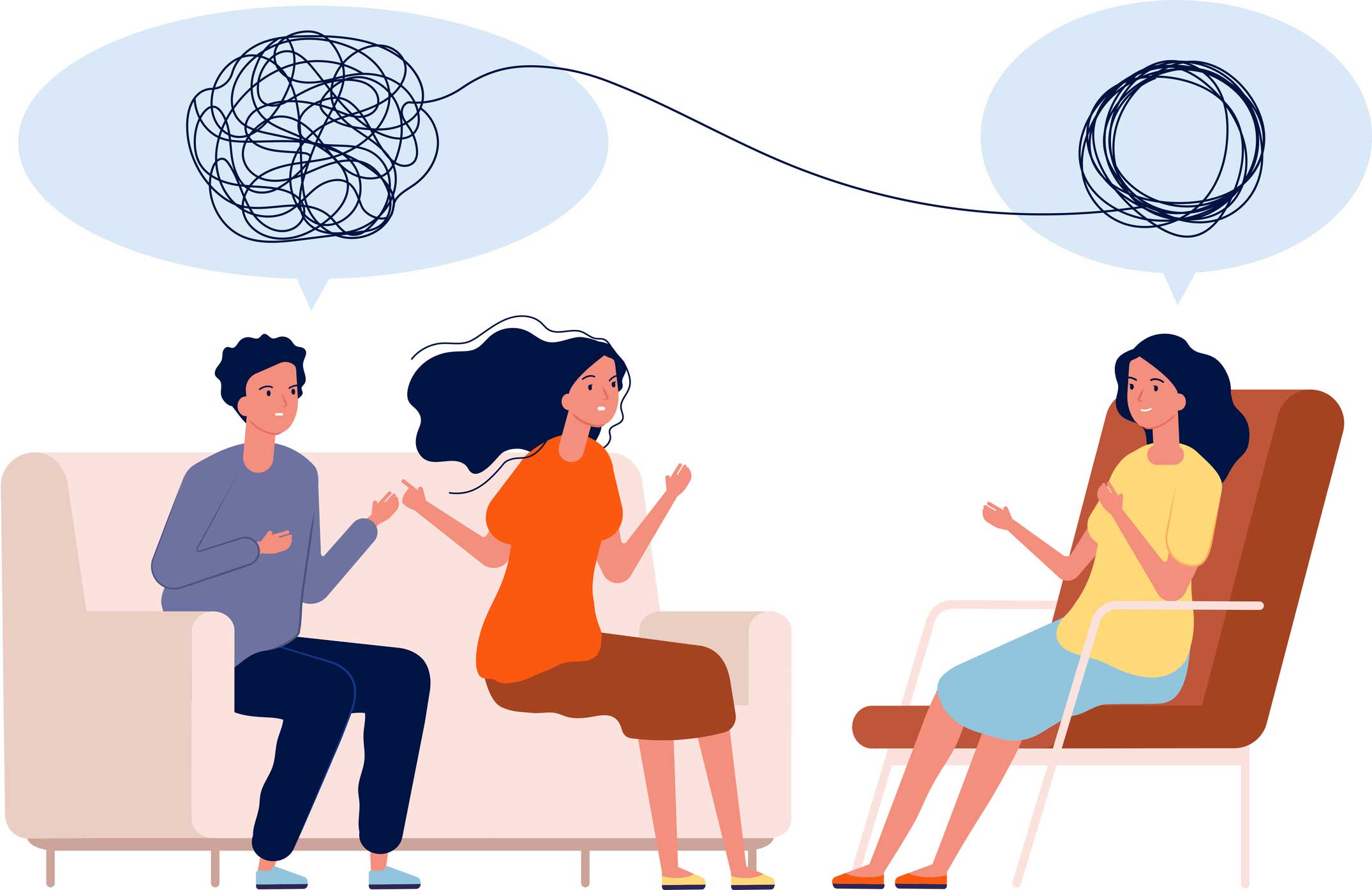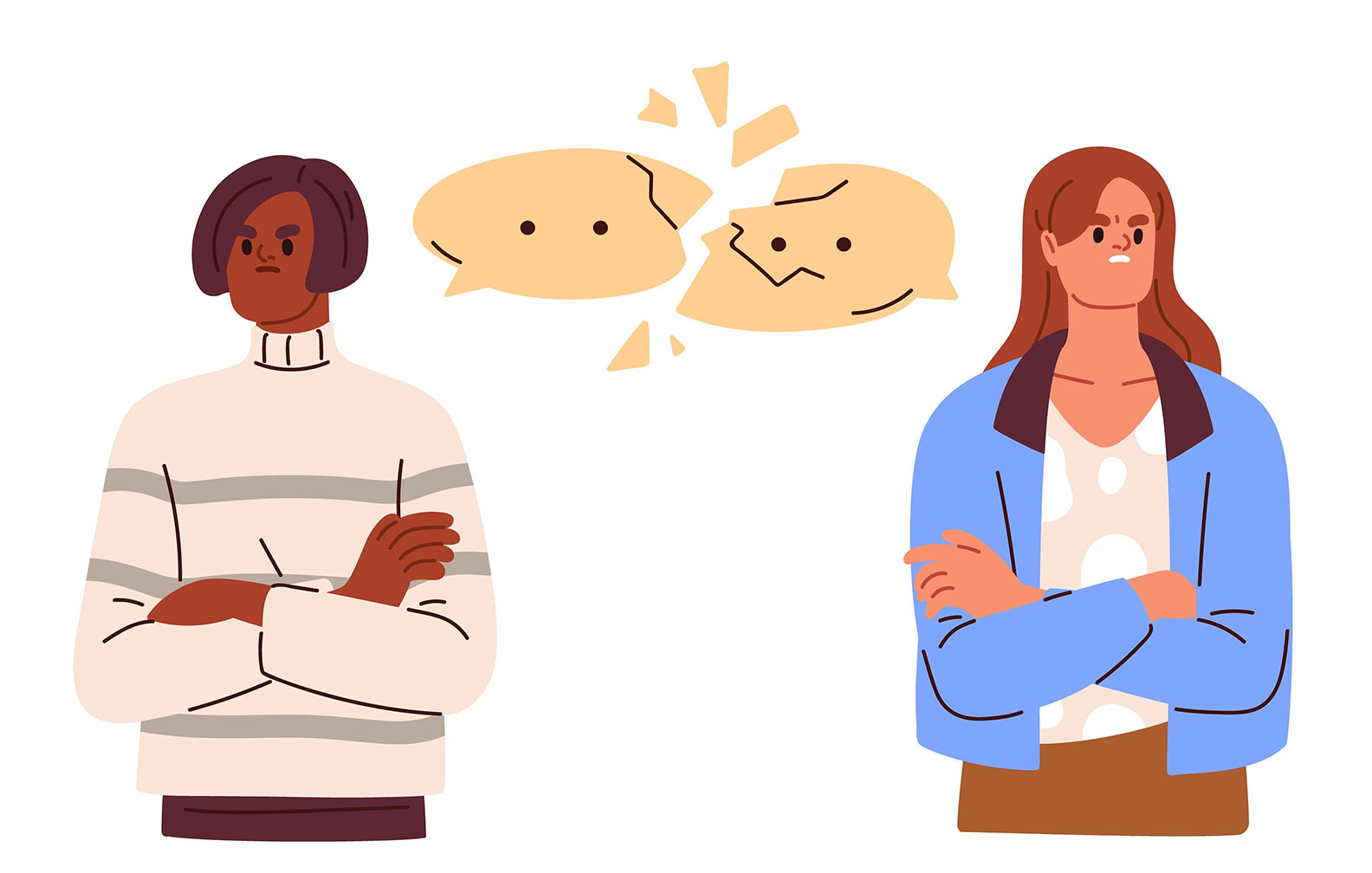Here is the transcript I promised you in my most recent blog post, “Moving Couples Through Defense and Ambivalence Toward Intimacy.” In that blog post I said that when I hear clients “intellectualizing” a desire for intimacy, it’s an indicator that they’re in the “Adult-ego state,” and probably covering vulnerability and fear.
This transcript demonstrates the Gestalt two-chair work that I discussed in that blog post. Two-chair work can be extremely helpful in identifying parts of the self that are blocked.
Notice how difficult it is for Sue, the client, to feel her aliveness. Wanting it and experiencing it are two different things. She is more internally disconnected than she realized.
Ellyn: So, you came to therapy to build a more intimate connection with each other. Is that something you're looking for from our work together today?
Sue: Yeah. That's one of my goals, definitely.
Ellyn: Okay. And can you describe a little more to me what intimacy feels like? How do you know when you have it? What are those intimate moments or the experience that you are searching for?
Sue: Well, I think those times when we hike or backpack. We’re out in the universe together. We can talk and we can dream together. When we're dreaming together I think I feel the most alive. I just like all those ideas and I like talking about all of that. And I like doing that together.
Ellyn: So those shared experiences. Those times when work is put aside and you're able to vision and dream and share ideas together. That's when you feel connected and intimate with Mark?
Sue: Yes.
Ellyn: Okay. So, I'm going to ask you to do something for a minute that might seem challenging. And here's what I'd like you to do. I'd like to ask you to describe two sides of yourself to me. One is the part of you that wants to take more risks, that wants to get more intimate, that wants to have more of those dreaming together moments. Describe to me that part of you that has the desire for that.
Sue: So that's the part of me that I feel like I've been cut off from.
Ellyn: When you are hiking and dreaming and sharing ideas, you like the feeling of it all seeming possible. The excitement feels precious.
And say more about wanting to feel more of that excitement, that aliveness. Wanting to feel more energy, more passion. Whatever your words are. But can you describe the part of you that wants to feel those feelings?
Sue: It’s hard. My head just keeps thinking about “why it isn't that way.”
Ellyn: We're going to get there in a minute.
Sue: Yeah. Yeah. But I feel this disconnect. But let me give it a try.
Ellyn: It’s hard to connect with the emotions you desire.
Sue: Mm-hmm (affirmative).
Ellyn: So, let's just say for now that sitting in this chair and trying to access the part of you that wants to be more intimate, what happens is you have some images of backpacking and dreaming together but it's hard for you to feel the aliveness.
Sue: Mm-hmm (affirmative).
Ellyn: Would you like to be able to feel that more intensely?
Sue: Yeah.
Ellyn: You would?
Sue: Yes.
Ellyn: So, will you say to the other part of you, “I’d like to feel the aliveness of hiking and dreaming more often”?
Sue: Yes. I’d like to feel this more often.
Ellyn: Okay. So let me ask you to switch to this other chair. And I'm going to ask you to talk about the part of you that's scared or doesn't want to allow that much intensity.
Sue: Okay. Well, I think what's hard about that is that my whole life has been about working and caretaking. And I have a family to provide for. And I don't switch gears easily from focusing on actually getting things done.
And so it's kind of scary to think about being in a real intimate connection, because then I wouldn't get anything done in the world. I wouldn't be able to do my work, which is really important to my family. Providing for my family matters most.
Ellyn: So, as you express this side, it sounds like the safer side. The more familiar, the safer.
Sue: Definitely, yeah. So, from growing up fast after the death of my father and having to figure out the world, I just don't really do feelings. I just keep moving on.
Ellyn: So, could you do something, just for a minute?
Sue: Mm-hmm (affirmative).
Ellyn: Could you say to the other part of you? Could you say, “I'm scared to really unleash you”?
Sue: Mm-hmm (affirmative). Yeah, well, I'm afraid. I'm really scared to unleash you.
Ellyn: Tell her a little more about what might happen if you unleash her.
Sue: Well, I'm afraid that you'd take control and all hell would break loose. I've been working so hard and we've been going through such a rough time and I don't think that you would allow for me to keep doing what I'm doing. I couldn't keep doing what I'm doing if you were on the scene. And that's really scary because then I would not be the provider that I'm supposed to be or that I want to be. That defines who I am.
Ellyn: Wow. So there’s a huge risk for you in stepping out? You might lose your core identity.
Sue: Mm-hmm. I’m seeing how polarized I am. It's got to be one or the other and this side almost always wins.
Ellyn: So, Sue, you are beginning to see this isn’t just something that Mark doesn’t do. It’s something that is scary to you as well. Sharing your dreams with Mark is risky for you.
This is a big revelation for Sue and an important step in moving towards the intimacy she desires. It is always easier to blame someone else – a partner – than to recognize how we block ourselves from experiencing exactly what we want to experience.
Please share your thoughts in the comment section below. Do you see how Sue’s insight can lead to more growth? Can you suggest effective next steps for Sue?


 We respect your privacy.
We respect your privacy.




Very good! Feels real! Good technique! Could she stay with it and develop it?
Thank you, Ellen. I might want to check in with Mark to see how he feels about these two parts and if he’s seen them both before.
Thanks. This is useful to see how you do this.
Reminds me quite a bit of Voice Dialogue technique, could add piece of embodying the Self in the middle to orchestrate and perhaps mediate between the two parts. Really good stuff, especially when they are actuallly experienced emotionally and physiologically, not just talked about.
Great technique! She acknowledged that she has a part (probably the biggest) of responsability in not being able to have intimacy so she will stop blaming Mark about it.
I think the next step is for her to realize her black and white view about life and learn that having intimacy won’t necessarily stop her being the provider for her family. Maybe this technique can be used so the two sides of her can make a deal ?
Dr. Bader,
My utmost respect to you, and the work that you do for Marriage and Couples Therapy.
A key factor that I have found in talking with couples, they tend to address issues they are having in their marriage, by blaming or finding fault with their partner, or even another family member. They forget, that where they are today, took an evolving process, and sometimes, it would help to go back to a poignant moment in their lives, when something happened, that triggered the way they are acting towards their spouse and is affecting how they let themselves trust, let go, and embrace the feelings and moments they want, and so much desire and need to experience in their daily lives, especially Intimacy and aliveness, with their partner. If they are to embrace any joy, and move towards having positive feelings, and satisfaction or fulfillment of needs and wants, which brings balance, they have to embrace the spiritual side.. Your approach and technique as usual, is spot on.
HI Ellen,
Was this technique done on front of Mark or in an individual session?
Thanks!
Sounds like Internal Family Systems when parts of us have opposite goals, are polarized and the therapist help the Self mediate and bring a broader perspective, like getting one part to agrees to not overwhelm the other in the name of achieving greater harmony in the internal dynamic of various parts.
Excellent technique and outcome. Now that she realizes that she is stopping herself from going all out to experience the intimacy she can look at what changes can be made in her routine or her lifestyle so as to free up her time and mental space so that she can bring in herself and her needs without affecting the core of her self.
A part of her is also likely to blame mark for not being the partner enough to let her be able to explore her own inner needs and desires. That part , if it exists, also needs to be brought out before any real change can happen.
Martha C,
Ellyn wanted to let you know this was a joint session. Thanks for the clarifying question.
I have one question:
Dr. Ellyn Bader, do you do couples therapy via Skype? If so, how much do you charge?